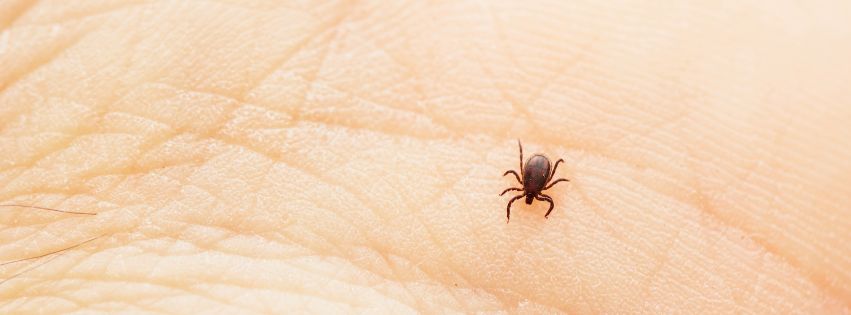Safeguarding Your Health – Natural Tick Prevention and Awareness in the Okanagan
Enjoying the beauty of the Okanagan’s natural landscapes comes with the caveat of increased tick activity during the warmer months. Understanding the risks associated with tick bites and the mechanisms by which ticks locate their hosts is essential for anyone looking to enjoy the outdoors safely. This guide outlines the risks and offers natural strategies for minimizing tick encounters.
The Risks of Tick Bites
Ticks are vectors for various diseases, most notably Lyme disease. If not promptly addressed, these illnesses can have long-term health implications. Awareness and proactive measures are vital in preventing tick bites and the potential health risks they carry.
How Ticks Find Their Hosts
Ticks have evolved several sophisticated methods to detect and latch onto their hosts. Understanding these can significantly enhance your prevention strategies:
- Carbon Dioxide (CO2): Ticks can sense the CO2 emitted through breathing from a distance, using it as a beacon to locate potential hosts.
- Body Heat and Moisture: A body’s warmth and humidity signal the presence of a host. Ticks are adept at recognizing these subtle changes in their environment.
- Vibrations: Ground vibrations caused by movement can alert ticks to potential hosts passing by. Ticks are sensitive to these physical cues and may respond by becoming more active.
- Scent and Skin Odours: Humans and animals emit unique scents through their skin and sweat. Ticks have receptors that can detect these odours, helping them distinguish between different potential hosts.
- Static Electricity: As people and animals move, they can generate static electricity, especially in drier environments or when wearing synthetic fabrics. According to studies, static can attract ticks as the electric fields draw them to clothing and skin.
By understanding these mechanisms, you can take a multi-faceted approach to tick prevention that considers how ticks perceive their environment and hosts.
Natural Strategies for Tick Prevention
Adopting natural strategies against ticks is essential for safely enjoying the outdoors, especially in tick-prevalent areas. Here are vital practices to incorporate:
Environmental Management
Cultivating a biodiverse garden can help naturally reduce tick populations. Encourage birds, insects that are predators to ticks, and even some reptiles by planting native species and maintaining the area to discourage tick habitats.
Mindful Outdoor Engagement
Any interaction with nature significantly raises your tick exposure risk. Avoid sitting directly on the ground in tick-prone areas, opt for tick-repellent materials for your clothing, and select cooler times of day for activities as ticks are less active then.

Personal Protection Through Natural Repellents
Natural repellents, particularly those made from essential oils such as lemon eucalyptus, geranium, lavender, and peppermint, can offer a layer of protection against ticks.
Disclaimer: When using essential oils as a repellent, it’s crucial to mix them with a carrier oil (like coconut or almond oil) to prevent skin irritation. Always conduct a patch test on a small area of your skin before full application to ensure no adverse reaction. Essential oils should be appropriately diluted and used cautiously, especially on children and pets.
Focus on applying your natural oils all over your feet/ankles and the back of your elbows, knees, and neck. For optimal protection, ensure you reapply every hour or two.
Regular Tick Checks
Conducting thorough tick checks on yourself, your children, and your pets after outdoor activities is crucial for early detection and removal of ticks. Pay special attention to warmer areas on your body such as the legs, groin. The shower is an excellent place for a tick check, making it easier to feel for bumps on soaped-up skin. At the end of every day, make sure you also check the back of your neck, hair, and scalp.
Prompt removal of ticks can significantly reduce the risk of disease transmission.
Stay Tick Safe
By understanding how ticks locate their hosts and implementing natural strategies to make yourself less detectable, you can enjoy the Okanagan outdoors with greater peace of mind. Stay vigilant and prepared; you can minimize the risk of tick bites and associated health concerns.

